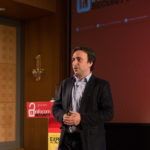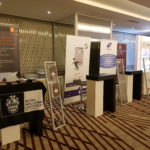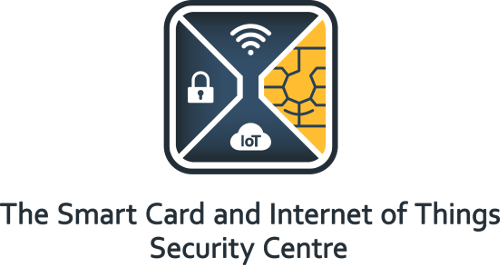Visiting Researcher Awarded European Emerging Forensic Scientist 2018

Doctor Heckmann Thibaut, who was a SCC’s academic visitor from 2017 to 2018, was rewarded with the “European Emerging Forensic Scientist Award 2018-2021” at the European Acadamy of Forensic Science (EAFS) conference, which took place in Lyon from August 27 to 31, 2018, and which brings together all the European forensic laboratories.
This prize rewards a process of collaboration between the RHUL, the Ecole Normale Superieure of Paris (ENS), and the Forensic Science Laboratory of the French National Gendarmerie (IRCGN). In that sense, when considering the latest generation of encrypted mobile devices (BlackBerry’s PGP,Apple’s iPhone), data extraction by forensic experts is an increasingly complex task. Forensic analyses even become a real challenge following an air crash or a terrorist attack. The collaboration between the SCC, the ENS and the IRCGN has helped to develop physical recovery of data on encrypted systems for the purpose of forensic analysis.
The EAFS committee noted that “the recovery of data and exploitation of electronic devices is a fast growing investigation field in forensic IT. Only a limited number of scientists are available in this discipline and all possible incentive needs to be going their ways. Data extraction from embedded and encrypted mobile phone devices is a highly complex task. Those data extractions are most important and fundamental in terrorist cases. In our opinion reading encrypted data is one of the most essential fields of Forensic Sciences in future”.
The techniques developed during SCC/ENS/IRCGN collaboration , put end-to-end and coupled with physical devices (X-ray 3D tomography, laser, SEM, fuming acids), have made it possible to have successful forensic transplants of encrypted systems in degraded conditions and applied, for the first time, on a PGP-encrypted BlackBerry mobile phone (used by terrorist networks and drug traffickers).
Finally, beyond the field of research, the work of the SCC, the ENS and IRCGN had a significant impact on the work of international forensic experts, particularly in the recovery of damaged and encrypted phones.

 Professor Konstantinos Markantonakis presented the main findings of the recently completed “Secure High-Availability Avionics Wireless Network” (SHAWN) project funded by Innovate UK, in terms of the security and privacy challenges on the wireless networks in the Avionics environments. Along with the newly started three-year project, “Data to Improve the Customer Experience” (DICE), funded by EPSRC. The project, among others aims to examine new challenges in security and privacy that were not present in the exiting smart ticketing infrastructures.
Professor Konstantinos Markantonakis presented the main findings of the recently completed “Secure High-Availability Avionics Wireless Network” (SHAWN) project funded by Innovate UK, in terms of the security and privacy challenges on the wireless networks in the Avionics environments. Along with the newly started three-year project, “Data to Improve the Customer Experience” (DICE), funded by EPSRC. The project, among others aims to examine new challenges in security and privacy that were not present in the exiting smart ticketing infrastructures.
 The next Smart Card Centre Open Day will be on August 30th 2017, in the Picture Gallery, Founders Building, Royal Holloway, University of London.
The next Smart Card Centre Open Day will be on August 30th 2017, in the Picture Gallery, Founders Building, Royal Holloway, University of London. A paper written by Raja Naeem Akram, Konstantinos Markantonakis, Sharadha Kariyawasam, Shahid Ayub, Amar Seeam, and Robert Atkinson, “Challenges of Security and Trust in Avionics Wireless Networks” has won the best paper award in the security track at IEEE/AIAA 34th Digital Avionics Systems Conference (DASC), September 2016.
A paper written by Raja Naeem Akram, Konstantinos Markantonakis, Sharadha Kariyawasam, Shahid Ayub, Amar Seeam, and Robert Atkinson, “Challenges of Security and Trust in Avionics Wireless Networks” has won the best paper award in the security track at IEEE/AIAA 34th Digital Avionics Systems Conference (DASC), September 2016. He will be lecturing on the MSc Module Computer Security (
He will be lecturing on the MSc Module Computer Security ( Congratulations to Dr Sarah AbuGhazalah!
Congratulations to Dr Sarah AbuGhazalah!